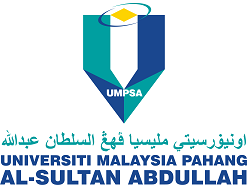TEACHING PRACTICE ATTITUDE AND BELIEF AMONG TEACHERS’ TRAINEES IN LAGOS STATE, NIGERIA
DOI:
https://doi.org/10.15282/ijhtc.v9i1.9488Keywords:
Teaching practice, Pre-service teachers, National Commission of Colleges of Education, Teacher Education ProgrammeAbstract
The effective conduct of teaching practice exercise enhances the quality of teacher education programme and build pre-service teacher confidence in the teaching profession. Thus, the study examines teachers’ beliefs about the teaching profession and the attitudes gained by pre-service teachers during the teaching practice exercise that will enhance their career growth. The study used a descriptive survey with structured and unstructured questionnaires to collect data from 125 respondents who were pre-service teachers in teacher education institutions. Data were analysed using descriptive. The findings showed that pre-service teacher participation in the teaching practice exercise provides them with the opportunity for professional growth and development in their career. The findings further revealed that students should be given the opportunity to provide answers to practical problems because it will enhance their thinking and reasoning processes rather than the teacher showing them how to solve the problems. Also, that instructions on what must be done should be built around problems and must have clear and correct answers so that students can quickly grasp them. The study concluded that teaching subjects should be used to allocate students to schools and these schools must be close to the abode of the student as this would remove fear and absenteeism and this would go a long way to achieve the objectives of the teaching practice exercise.
References
Amuda, A. (2017). The conducts of teaching practice exercise in Colleges of Education and Universities in Nigeria. International Journal of Topical Educational Issues, 1(2): 344-354.
Bichi, A. A., and Musa, A. (2017). Evaluating the effectiveness of teaching practice: Experience of Northwest University, Nigeria. International Journal of Social Studies. 3(1): 104-112.
Djenno, M. Insua., G.M. and Pho, A. (2015). From paper to pixels: Using Google Forms for collaboration and assessment. Library Hi Tech News. 32(4): 9-13.
Flores, R.C. (2017). Attitudes about climate change among Mexico City High School Students. Journal of Education.Society and Behavioural Science. 21(3): 1-8.
Jekanyinfa, A.A. (n.a). Hints for Students Teachers on Lesson Presentation: A Guide to Teaching Practice Textbook. Ibadan: Ibadan Board Publication Ltd.
Kumar, K., and Naik, I. (2016). How to create an online survey using Google Forms. International Journal of Library and Informations Studies. 6(3): 118-126.
Nakpodia, E.D. (2011). Teacher and the student practice teaching programme in Nigeria Educational System. International Journal of Educational Administration and Policy Studies. 2(3): 33-39.
National Commission for Colleges of Education. (2015). Minimum standards for NCE teachers. Abuja: NCCE Press.
Nnenna, E.E., and. Olanrewaju, M.K. (2015). Teaching practice anxiety sources as correlates of teaching performance among student teachers in Federal Colleges of Education in Southwestern, Nigeria. European Scientific Journal. 11(22):181-196.
Ogonor, B.O., and Badmus, M.A (2006). Reflective teaching practice among student teachers: The case in a Tertiary Institution in Nigeria. Australian Journal of Teacher Education. 31(2): 1-11.
Orji, N.O., Orgar, S.I., and Ayedun, T. (2018). Influence of Jigsaw-Based Learning Strategy on academic achievement of upper basic students in basic science in Etim-Ekpo Of Akwa-Ibom State. Abuja Journal of Arts and Social Science Education. 1(3): 1-12.
Perry, D. (2016). Curriculum development for Africa. Onitsha, Nigeria: Africana Feb Publishers.
Rohmah, N., Hariyono, M. and Shofiyuddin, M. (2018). Implementation of Google Forms in ECE to face the digital era. Advances in Social Science, Education and Humanities Research. 249: 177-180.
Shah, Z.A., Mahmood, N., and Harrison, C. (2013). Attitude towards science learning: An exploration of Pakistani students. Journal of Turkish Science Education. 10(2): 35-47.
Downloads
Published
Issue
Section
License
Copyright (c) 2024 The Author(s)

This work is licensed under a Creative Commons Attribution-NonCommercial 4.0 International License.




